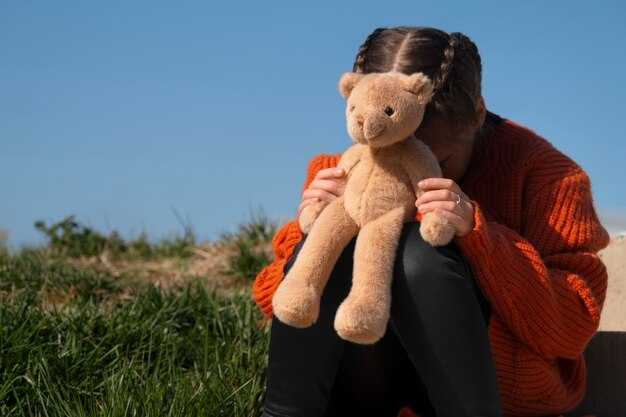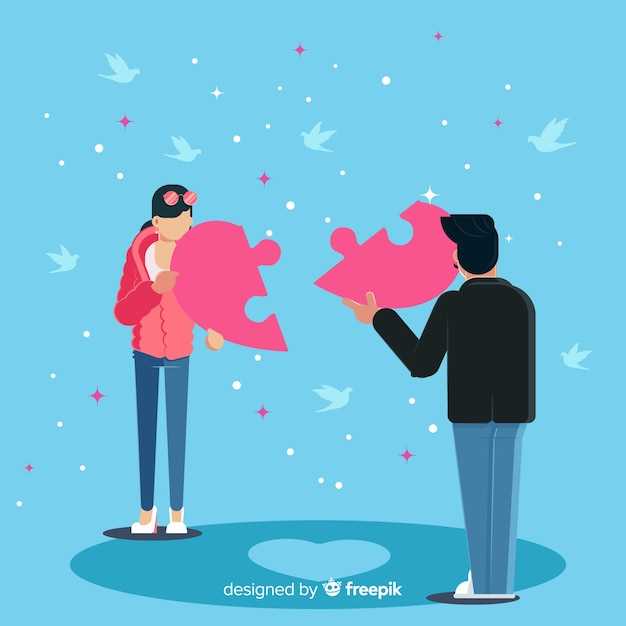This is what happens when you fall in love with an avoidant person. At first there’s an intense sense of belonging, like finally finding something you’d only ever imagined — the uncanny relief of feeling at home. You fasten yourself to that connection because, almost immediately, you notice hints that they may be incapable of returning that love. Those signs don’t look like alarms, though; in the presence of that person—right there but somehow not fully present—the emotion feels achingly romantic. It seems like it could work. The possibility is tangible. But if this pattern repeats across relationships, it’s not mere bad luck: it becomes a pattern you keep stepping into. Does that mean you’re sentenced to longing after people who can’t meet you? The next story is from a woman who goes by Laya. She writes, “Hi, Anna. I can’t stop thinking about this man and I don’t want to want him. I’m 42 now — too old for this nonsense.” Okay, she gave me a highlighter and I’ll mark things to revisit on a second pass. But first, what’s happening in Laya’s life now? When she was five, her older sister told teachers their father had abused her. They spent a few months in foster care, which left a deep mark. The other foster children acted out and bullied her daily. Each morning when her sister left for school she’d cry with separation anxiety, and the other kids mocked her. One morning she refused to eat her grits and the foster mother locked her in a hot room all day with no food or water. She felt terrified, abandoned, and unbearably thirsty. Coming home didn’t restore trust in adults — not in teachers, not in parents. Her mother stayed with her father despite everything, and their fights were often about money. He punched holes in the walls; it frightened everyone. Anxiety pressed on her chest constantly. She feared male teachers. She began drinking in eighth grade and tried drugs by tenth, sometimes appearing at band competitions intoxicated, yet somehow she kept excellent grades. She longed for adulthood, eager for freedom and knowledge. She finished school in three years. Her sister left home at eighteen; Laya left at nineteen. They ran away. She learned to be fiercely self-reliant, refusing to ask for help or advice, watching others’ mistakes and resolving not to repeat them. She never cried in front of people; criticism wounded her. She chased perfection and developed a dark sense of humor. Sound familiar? Moving on: she had a few serious relationships. One long, obsessive teenage attachment lingered for years after it ended. He treated her as if she didn’t matter and she stayed desperately in love, thinking, “Let me love you.” As an adult she assumed those were hormonal, youthful feelings. Later came nine miserable years with an alcoholic partner, and then three years with a man later clinically diagnosed as narcissistic — long before that label became common. His damage was the worst: hypercritical, possessive, controlling, he isolated her from friends until it was just the two of them. She left, sank into deep depression, and was diagnosed with a serious autoimmune illness that had been undetected. Professionally she worked relentlessly and earned frequent promotions. She dated casually and stayed single for three years. Then she found apparent safety with an avoidant: no scenes, no yelling, no heavy expectations — an elegant relief. No drinking or drug use. He committed to being her boyfriend after three months, but that’s all it ever matured into. When she fell ill and lost her job, she asked him to move into her condo. He refused several times. She had always avoided asking for help because of this exact fear, so his refusal felt impossible to comprehend. If he loved her, why would he say no when she needed physical and financial support? She would have helped him without hesitation. The denial felt like a knife in the chest; old voices from childhood returned: men cannot be relied upon. She told him she was moving somewhere cheaper. Suddenly he wanted to move in and insisted on it — but he did so resentfully, and that resentment lingered. She turned over the office to him as a man cave; he spent nearly all his waking hours there, surfacing only for food and sex. Attempts to talk about connecting and spending time together stalled because he was too avoidant to engage. She felt like a neglected houseplant, starving for the barest care. They ultimately broke up. Afterward she reconnected with an old crush — successful, smart, kind — who told her she had been the one who got away. He praised her as special, brilliant, and beautiful, and said the two of them would be extraordinary together, even imagining running a business as partners. Everything escalated quickly: both of them were walking red flags. They talked for hours and she felt truly seen. But whenever the conversation turned intimate — or an email read too close, or time together turned deeper — he would withdraw the next day. A cycle of hot and cold repeated, and it made her act in ways she later regretted. She calls herself a “pick me” girl and is embarrassed by how she behaved. She kept texting, but his replies grew shorter and more detached. Perhaps he enjoyed the ego boost of her yearning. He would check in now and then, they’d talk again briefly, and the loop continued until she felt terrible about herself. She could list many reasons why they wouldn’t work, so she stopped texting and blocked him on social media. He hasn’t reached out since. She can’t bring herself to block his number because maybe, just maybe, he’ll become the version of himself she imagines — the fake ideal she keeps hoping for. She’s tried to redirect her thoughts when he drifts into her mind, focusing on her own plans and making a list of cons so she can read it when doubt creeps in. Her rule is simple: she wants a partner who wants to be a partner. He clearly isn’t. It’s been over three months of no contact, yet she hasn’t felt this intensely about someone since high school. She wants to knock him off the pedestal, but reason has little effect. Logic doesn’t soothe the ache for this man who, amusingly, doesn’t even like cats. What is she missing? “I don’t want him anymore,” she says. That is Laya’s letter. Thank you, Laya. Many will recognize this story. Let’s look at what you described and the parts that stand out. There’s a history of severe family abuse, and that kind of early trauma often pushes a child into detachment or dissociation. While not providing professional diagnosis here, patterns are visible across so many lives: unprocessed childhood trauma distorts how relationships form until that history is truly faced and a different path is chosen. Saying “just heal the trauma” or implying it’s a single fix is misleading. Healing isn’t a one-step cure; it’s a new way of living. It involves becoming more honest with yourself, building safer connections — often not with the types of people you would normally date — and cultivating community that shields you from the loneliness that can drive you to tolerate mistreatment. Your foster-care experience was a huge wound. Being locked in a hot room without food or water is terrifying, and of course it damaged your ability to trust adults. Returning to a home where the mother stayed with the father through violence created an environment of unpredictability and fear. Anger and anxiety are common responses. Starting to drink and use drugs, feeling afraid of male authority figures, and leaving home young are understandable reactions to that chaos. One question left hanging: have you pursued sobriety? For many with attachment wounds, alcohol lowers judgment and loosens boundaries, making impulsive choices in relationships more likely. Some people discover they function better if they avoid alcohol entirely unless situations are very safe. Your determination to become independent and your perfectionism were adaptive strengths that helped you escape a painful household, but those same defenses can make emotional intimacy difficult. Being unable to cry in front of others, being hypercritical of yourself, and using humor to deflect are all survival strategies, and they color adult connections. Your early limerence — being obsessed with someone who treated you as if you didn’t matter — is classic trauma-driven longing. When trauma convinces you that love looks like frantic clinging to someone who hurts you, it’s helpful to notice the difference between what your trauma is prompting and what genuine mutual love would feel like. Remind yourself: traumatic longing is not the same as healthy love. The compulsion to win someone who’s not giving you affection is a symptom of unprocessed pain. You can learn to label it that way and interrupt the impulse. That recognition doesn’t erase the feeling immediately, but it gives you a tool to step back and choose a different response. You’ve lived through relationships with people who were unavailable in different ways — alcoholism, narcissism, and avoidance. For someone raised without reliable care, the avoidant partner can feel oddly safe because being with them doesn’t demand new, vulnerable growth; the relationship stays at a distance where it’s painful but predictable. That perceived safety can be seductive. When the avoidant declined to move in during your time of need, that refusal reopened old wounds: the familiar message that male partners aren’t dependable. When you announced plans to move away, he agreed to move in, but his resentment made the arrangement hollow. You can coax an avoidant into logistical changes, but you can’t force genuine emotional presence. Giving him the office and watching him emerge only for meals and sex is a painful example — it left you feeling invisible and uncared for, like a plant that gets no water. Sometimes people need to experience these things to learn the truth about a partner; those low-drama relationships can feel like respite while you’re healing, but they can also mask a lack of real intimacy. After that relationship ended, reconnecting with an old friend who love-bombed you felt intoxicating: praise, possibility, shared dreams. The early thrill of being “seen” can be powerful, especially after a history of neglect. But the pattern of closeness followed by withdrawal — hot then cold — is damaging and predictable for someone with your wounds. It provokes shame and behaviors you later regret, yet those reactions are entirely understandable. Blame and shame aren’t useful here; these are understandable responses to trauma and manipulation. Blocking him on social media and stopping contact were strong moves. Refusing to block his number — in case he will change into the idealized version you imagine — is also a familiar impulse: the mind creates a fantasy of the person who might be if only things were different. The work is to replace that fantasy with clear-eyed facts: he’s not willing to be the partner you need. If a person can be with you — genuinely and consistently — they will be. Intermittent coldness followed by attention is not the same as a committed, reciprocal partnership. What practical steps help get past this pattern? Here are several concrete, powerful strategies you can try. First, adopt a specific daily writing practice. Use it to empty your heart and mind of the replaying emotions, twice a day if needed. Put everything on paper and then deliberately ask to let those feelings go, allowing your nervous system to rest. Unprocessed feelings stay physiologically charged and keep looping; organizing them into words reduces that charge and turns them into memories instead of living storms. Second, use immediate grounding and nervous-system tools when the obsession rises. Techniques like cold exposure, deliberate hot/cold contrast, EMDR-like eye movements (tracing an infinity symbol with your eyes while thinking of the memory), and other somatic exercises can interrupt the loop and bring the brain back to baseline. Think of it like fixing a chain that keeps slipping: you need practical tools to get it back on track. Third, reintroduce joy and variety into life. Obsession grows faster when life narrows and the object of desire becomes the only source of excitement or connection. Go out, have fun, cultivate experiences that make you feel alive as a single person — with friends, alone on purpose, trying new hobbies. The more richness you derive from life itself, the less any one person can hold all your hope for happiness. Fourth, build a support network of people who understand these wounds: therapists, peer groups, recovery meetings, or membership communities where others practice the same daily exercises. Isolation lets old patterns fester; connection with safe, steady people gives you alternative models of care. Finally, carry a short list of red flags with you. When new attraction flares, pause, step away, and read the list. It’s a quick way to test whether the feeling you’re having is genuine mutual interest or an old attachment pattern reactivating. If you want such a checklist, it can be provided by leaving an email in the form and receiving it directly. In short: this pattern is common for people who survived childhood neglect and abuse. It’s not your fault, but it is a pattern that can be changed. Use practical, repeatable tools — writing, nervous-system techniques, deliberate fun, and dependable community — and you can begin to weaken the loop of longing for people who cannot love you back. You’re closer to freedom than you think. Goodbye for now; take care and keep practicing.



 Childhood Trauma Drives You to ATTACH to People Who Can’t Love You">
Childhood Trauma Drives You to ATTACH to People Who Can’t Love You">

 How to Tell Trauma Is Driving You to Pull Away (4-video compilation)">
How to Tell Trauma Is Driving You to Pull Away (4-video compilation)">
 Solve your Relationship PROBLEMS with ONE QUESTION!">
Solve your Relationship PROBLEMS with ONE QUESTION!">
 How to Make an Avoidant Obsessed (And Walk Away First)">
How to Make an Avoidant Obsessed (And Walk Away First)">
 The BEST Narcissist Protection! THIS will Repel a Narcissist.">
The BEST Narcissist Protection! THIS will Repel a Narcissist.">
 ">
">
 How to know when to LEAVE your Relationship">
How to know when to LEAVE your Relationship">
 Attachment Styles and the Pain of Ending Toxic Relationships">
Attachment Styles and the Pain of Ending Toxic Relationships">
 Here’s How You Know It’s Time to Tell Him You’re Into Him">
Here’s How You Know It’s Time to Tell Him You’re Into Him">
 Have you settled for a FALSE version of LOVE?">
Have you settled for a FALSE version of LOVE?">